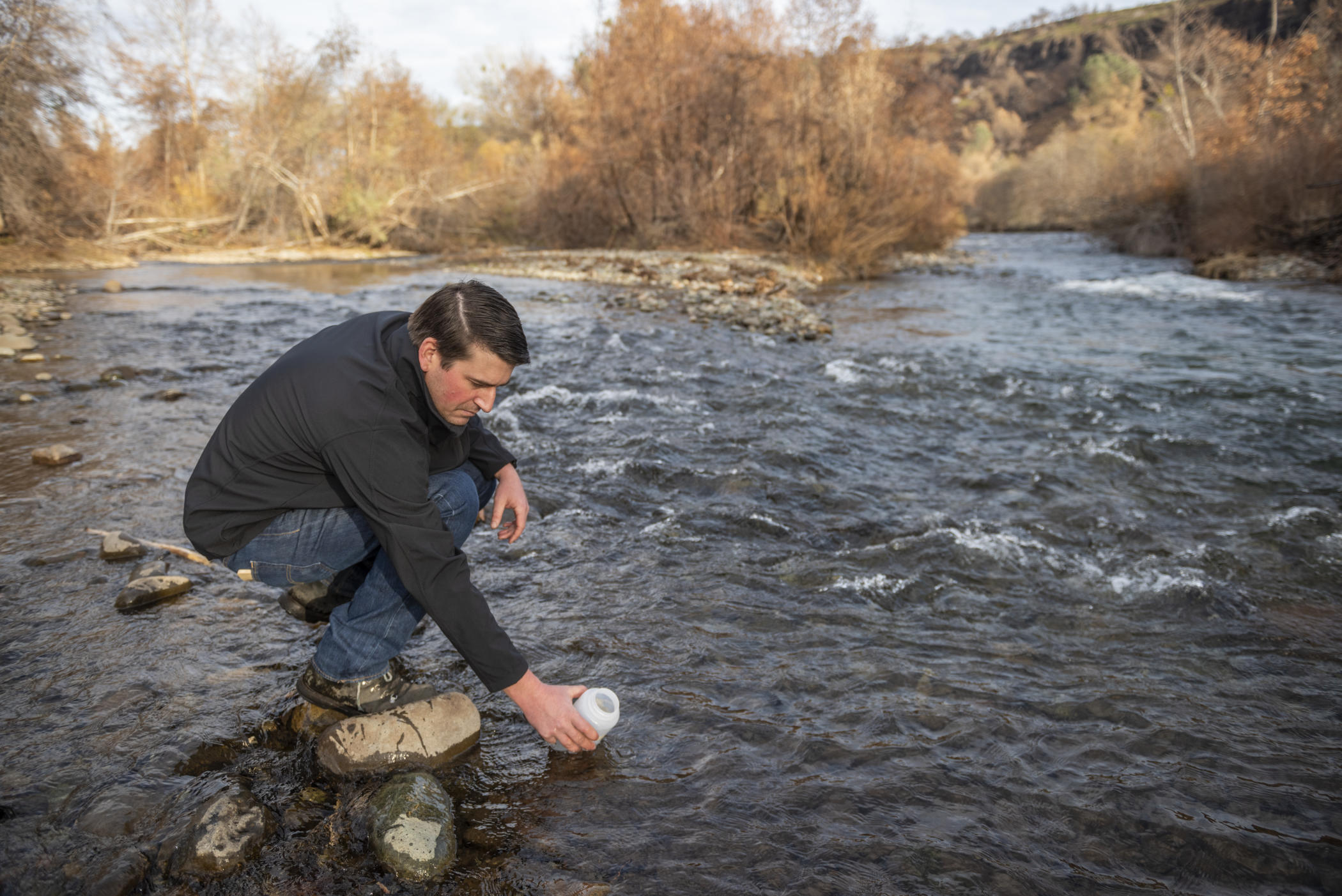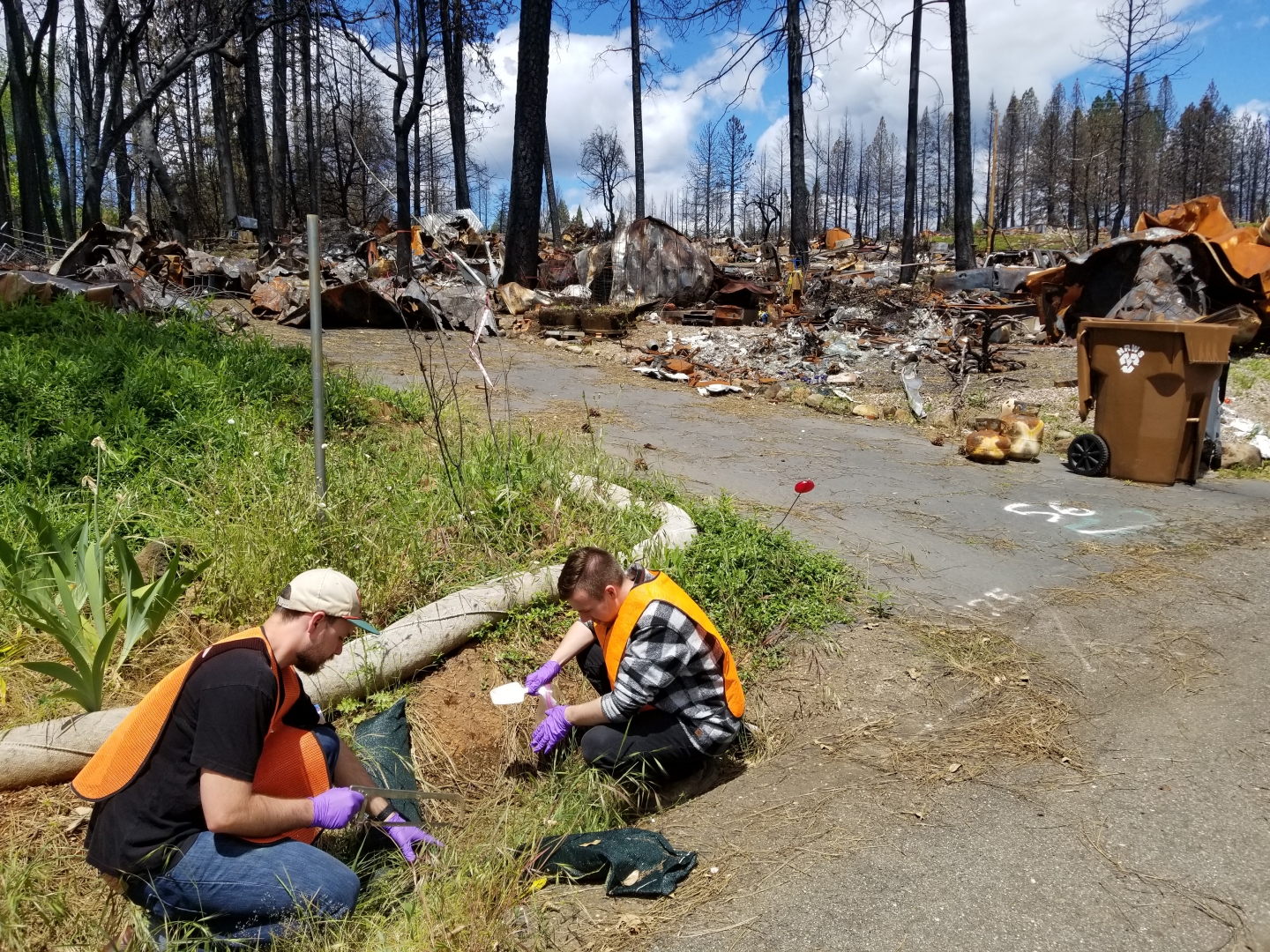Research in the Aftermath of the Camp Fire Reveals the Threat of Wildfires on Water Quality

As wildfires wreak havoc, not only on human lives and infrastructure but also on connected ecosystems, a groundbreaking multi-year research initiative launched at Chico State in the aftermath of the Camp Fire examined the presence of contaminants, including metals, in nearby watersheds.
Led by Chico State faculty and joined by researchers from the University of Colorado Boulder and the United States Geological Survey (USGS), the research, recently published in the prestigious Journal of Environmental Science: Processes and Impacts, sheds light on the alarming impact of wildfires on stormwater runoff.
In the case of the Camp Fire, the concern is how metals affect the long-term health of the aquatic ecosystem, including the threatened spring run of Chinook salmon that spawn in Butte Creek.
Titled “Wildland-Urban Interface Wildfire Increases Metal Contributions to Stormwater Runoff in Paradise, California,” the paper delves into the findings of extensive investigations following the Camp Fire.
Under the guidance of Chico State faculty members Jackson Webster, associate professor in the Department of Civil Engineering, and Sandrine Matiasek, associate professor in the Department of Earth and Environmental Sciences, the work investigates the effects of widespread urban burning on surface water quality in the Camp Fire-affected watersheds.
With nearly 19,000 structures burned to the ground, including residential, commercial, and vehicular materials, the study aimed to assess the risk and transport of fire-induced metals via runoff in downstream watersheds.
“An event of this magnitude had not happened previously and has not happened since,” said Webster. “This was a unique event and opportunity to study the effects of large-scale disaster on stormwater quality.”
Over six months, the team collected a total of 140 surface water samples from both burned and unburned watersheds, analyzing baseflow and stormflow, and examining varying levels of urban development.

Funded by a $51,000 rapid response grant from the National Science Foundation, the study engaged a collaborative effort involving students and research partners from CU Boulder and USGS, among others, providing crucial support in laboratory analysis and data interpretation.
Lauren Magliozzi, a doctoral researcher at CU Boulder and the paper’s first author, highlighted the significance of their findings, stating, “The 2018 Camp Fire was a sobering wake-up call that revealed gaps in our understanding of how wildfires can impact watersheds.”
The study underscores that wildfires in the wildland-urban interface significantly elevate metal concentrations, primarily through particulate-driven transport, with anthropogenic disaster materials and biomass ash emerging as major contributors to water quality degradation.
These revelations highlight the urgent need for informed response efforts to mitigate the adverse ecological impacts of wildfires on water resources, with implications reaching far beyond the Camp Fire-affected regions.
Contributors
Lauren Magliozzi (First Author), University of Colorado Boulder
Sandrine Matiasek, California State University, Chico
Charles Alpers, United States Geological Survey
Julie Korak, University of Colorado Boulder
Diane McKnight, University of Colorado Boulder
Andrea Foster, United States Geological Survey
Joseph Ryan, University of Colorado Boulder
David Roth, United States Geological Survey
Peijia Ku, Oak Ridge National Labs
Martin Tsz-Ki Tsui, The Chinese University of Hong Kong
Alex Chow, Clemson University
Jackson Webster (corresponding author and lead PI), California State University, Chico


